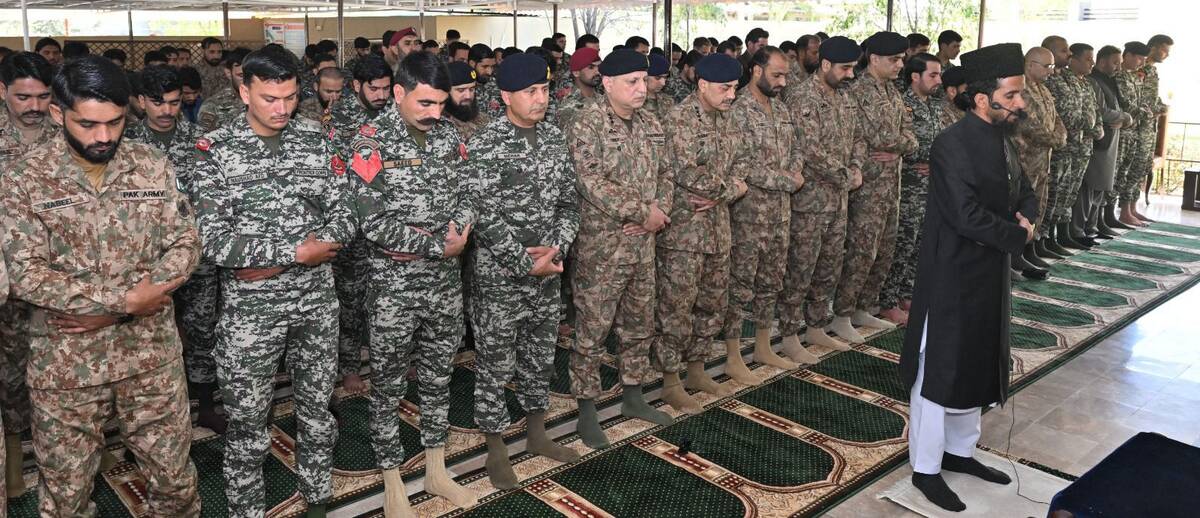ISLAMABAD/KARACHI: Pakistani students in Kyrgyzstan on Saturday urged their country’s administration to make arrangements for their evacuation from the Kyrgyz capital of Bishkek after mob violence against foreign nationals enrolled in various universities broke out on Friday evening in which five Pakistani medical students got injured.
A Facebook post by Pakistan’s diplomatic mission in the Central Asian city said the violence began after the emergence of online videos showing a brawl between Kyrgyz and Egyptian medical students that took place on May 13.
The mobs mostly targeted hostels of medical universities and private residences of international students, including Pakistanis, in Bishkek. According to the Pakistan embassy, around 10,000 Pakistani students are enrolled in different institutes in Kyrgyzstan and nearly 6,000 of them live and study in Bishkek.
Speaking to Arab News over the phone, Rana Taha, a final year medical student in the Kyrgyz city, he was stuck at his flat with other Pakistani students without any food and water.
“We have been frantically calling our embassy and the local authorities for assistance, but they are only advising us to stay indoors,” he said. “The paramilitary troops are patrolling the streets since the situation is still not under control.”
“The locals attacked our flat twice in the early hours of the day, but luckily they failed to barge in,” he continued. “We appeal our embassy to evacuate us to safety or make arrangements for our safe flights to back home.”
Nisar Ali, a fourth-year medical student from Peshawar, said the local police appeared to be “assisting the rioters,” instead of stopping them.
“They [rioters] are not discriminating among international students,” he informed. “Although it started between Egyptian students and locals, they are now attacking every foreigner, whether they are Indian, Pakistani, Egyptian, Bangladeshi, or citizens of any other country. Every other student is injured. Several of my friends who lived in the hostel have been attacked and are severely injured.”
Ali said the violence started at about 10pm on Friday, but the Pakistan embassy did not answer the calls until morning.
“I live with Pakistani friends in an apartment,” he added. “We have locked ourselves in with all lights off. We have nothing to eat, and we cannot go out, as going out means you are going to be attacked.”
He noted some peace was restored when the army troops arrived in Bishkek, but the students were still not feeling safe.
“We appeal to the government of Pakistan to safely evacuate us,” he said.
Pakistan’s ambassador to Kyrgyzstan Hasan Zaigham confirmed while speaking to Arab News over the phone that five Pakistani students had been injured.
“One of them is admitted in a local hospital with some jaw injuries, while four others were released after first aid,” he informed.
“No Pakistani is killed or raped in the violence,” he said, rebutting rumors on social media. “The situation is under control now as Bishkek authorities have dispersed all the miscreants.”
The ambassador said they had advised Pakistani students to stay indoors and get in touch with the embassy in case of any urgency.
“We are in touch with the local law enforcement authorities to ensure safety of our students,” he added.
However, Muhammad Waleed, a final year medical student, said they had not received any “support from the Pakistan embassy despite our repeated calls and messages,” though they were informed to stay indoors.
“I am taking shelter here in Bishkek at a human rights organization’s office along with dozens of other Pakistani students,” Waleed informed over the phone. “Most of the students are still stuck in their hostels and apartments.”
He acknowledged the situation got better when the paramilitary troops were deployed in the city, though he said the situation was still fluid.
“We want Pakistani government to immediately arrange for our safe travel to back home as the situation may escalate again once the troops are pulled out,” he added.
Raj Kumar, a resident of Tharparkar district in Pakistan, told Arab News his sister was a medical student in Bishkek, adding that students there were suspecting the resumption of violence tonight.
“Those girls including my sisters are terrified by the situation,” he said. “They need to be relocated to a safer place.”
“We want to know what is the course of action contemplated by the Pakistan embassy there and the ministry of foreign affairs in particular,” he added.
Tariq Aziz, a Karachi resident, also said his daughter was “trapped inside a flat along with three friends,” which was located opposite to the hostel that was attacked last night.
“When I talked a little while ago, my daughter told me that only one message came from the Pakistan embassy, saying not to leave the flat. But there is no guarantee that the rioters, just like they broke the doors of several other flats where students were residing, will not break door of their flat too,” he told Arab News.
“A long time has passed since the violence started. The Pakistan embassy should not send messages but arrange security for the girls and safely take them to the airport,” he added.
Pakistan’s foreign ministry summoned Kyrgyzstan’s top diplomat in the country in response to the mob violence and handed him a protest note.
“It was impressed on the Kyrgyz charge d’affaires that the Kyrgyz government should take all possible measures to ensure the safety and security of Pakistani students and citizens,” it said in a statement.
Mumtaz Zahra Baloch, the Pakistani foreign office spokeswoman, said the Pakistani embassy had responded to hundreds of queries by students and their families. She said the country’s envoy and his team were available on the emergency contact numbers: +996555554476 and +996507567667.
“In case the numbers do not connect because of phone traffic, please text/WhatsApp,” Baloch said on X.
The Pakistani embassy reported earlier it had been able to contact over 250 students and their family members in Pakistan, adding the violence appeared to be directed at all foreign students and was not specific to Pakistanis.
It said this was an evolving situation and they would inform the Pakistani community in Kyrgyzstan and their relatives in Pakistan about any further developments.



















